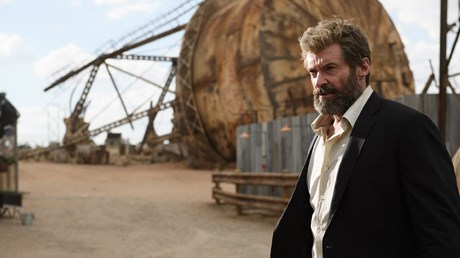Hugh Jackman’s final performance as the iconic mutant brings him face to face with his own mortality.

In its look at human frailty and death, James Mangold’s Logan is unlike any superhero film ever produced—and it just may change the genre for good.
As it happens, Logan also works as a spiritual sequel to the director’s 2005 Johnny Cash biopic Walk the Line. Making a name for himself with songs that exalted “heroic all-American Lazaruses,” Cash reveled in larger-than-life legends and outlaws whose grand exploits and staggering fables live long past their deaths. Later in life, however, a newfound humility would come to dictate the country singer’s twilight recordings. For example, in his 2002 cover of Nine Inch Nails’ “Hurt,” Cash laments an Ecclesiastian life lived in pursuit of future and fame. And, in one of the last songs he penned before his death, “The Man Comes Around,” the Man in Black concedes to a greater Man that all—legend and gunslinger alike—will eventually be held accountable to.
Like the characters in Cash’s early discography, Hugh Jackman’s comic-book mutant, Wolverine, is a Lazarus of sorts, too. Armed with metallic claws and regenerative ability, over his eight previous film appearances in the X-Men franchise, audiences have seen him shot, stabbed, and drowned—only to gaze in awe as he rose moments later.
It’s fitting, then, that Logan, a story about a once-invincible superhero now facing the perils of old age, would end with Cash’s “The Man Comes Around.” For all its comic lore and surging action pieces, Mangold’s breathtaking project first and foremost functions as a deconstruction of the mythical, impregnable crusader. Logan’s stark message is true, even if we choose not to …
Source: Christianity Today Most Read